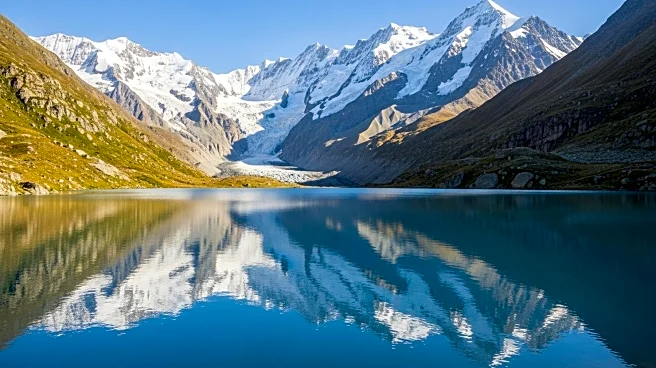What is the story about?
What's Happening?
Switzerland has witnessed the disappearance of over 1,000 glaciers, with melting rates accelerating due to climate conditions. The United Nations International Year of Glaciers' Preservation coincided with significant glacier loss, exacerbated by a winter with little snow and subsequent heatwaves. This year, nearly three percent of the ice volume was lost, marking the fourth greatest shrinkage in recent history. The Swiss Commission for Cryosphere observation documents these changes, highlighting the impact of reduced snow reserves and high summer temperatures on glacier stability.
Why It's Important?
The rapid melting of Swiss glaciers is a stark indicator of climate change, with significant implications for global environmental stability. Glaciers play a crucial role in water supply, ecosystem balance, and climate regulation. Their accelerated melting could lead to increased sea levels and destabilization of mountain regions, posing risks to communities and infrastructure. This situation underscores the urgent need for global climate action and adaptation strategies to mitigate the impacts of climate change.
Beyond the Headlines
The continuous loss of glaciers also raises concerns about the long-term sustainability of water resources and the potential for natural disasters, such as avalanches and landslides. The situation in Switzerland serves as a microcosm of broader environmental challenges facing the planet, highlighting the interconnectedness of climate systems and the need for comprehensive monitoring and response strategies.















